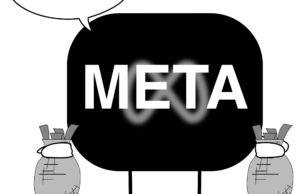Cards, Sex, and Cheerios
There are fifty-two cards in a deck, or, if you include jokers, fifty-four. I learned this lesson the hard way, through a game of “52 Card Pickup” initiated by my demonic older brother. While this was a rather unpleasant way to embed this lesson in my head, I haven’t forgotten it since, so you can understand my confusion when I was introduced to the foreign concept of a “v-card.” I had individually picked up each of the fifty-two cards in a deck off of the floor and there wasn’t a single one that seemed to fit this description, so I assumed, much like a joker, this was an unimportant card.
Even today, as a more enlightened teenager who understands the concept of a “v-card,” I stand by my original conclusion. This card serves no purpose, and much like jokers, you can take it or leave it without affecting the game in any significant way. Teenage boys everywhere must be shaking in their Converse at the idea that this fictional card isn’t the single most important fact about a girl. As anyone who has ever played a game of twenty questions with a boy since the eye-opening experience of seventh grade life science class can tell you, boys no longer wanted to know about your interests, hobbies, or even your favorite movie. The game essentially became a contrived way for a boy to ask the age-old question, “Are you a virgin?”
But why does this matter so much to teenage boys, and girls alike? There seems to be no winning answer to the question: you either say yes and are seen as a prude, or you say no and are seen as disgusting and used. In reality, your answer to this futile question does not in any way define your worth as a person.
Prepare for the excited screams of teenagers everywhere as I quote the super-underground, you’ve-probably-never-heard-of-him, virtually-unknown author John Green on the issue, who says, “it’s such a weird thing to care about. Like, imagine if I started eating Cheerios for breakfast. Would Cheerios be like, ‘I’m the 48th cereal you’ve tried eating? I don’t feel special!’ Well then screw you Cheerios, I can’t go into the past and un-eat all those other cereals, but that doesn’t mean I don’t genuinely enjoy your whole-grain crunch.”
Not to play the role of the hipster, but this lesser-known Green metaphor is way better than that mainstream cigarette metaphor (which still makes no sense to me). So maybe some of us will try different types of cereals before others, and maybe some of us will wait to try a cereal until we’re sure it’s the right cereal for us, but neither decision makes you better than anyone else. One’s value as a person shouldn’t be tied to what decision they make about cereal, nor should it be placed on whether or not they choose to play cards with or without jokers, so why place it on something equally as insignificant?



